Leviticus 2 meaning explained in AI Summary
The Grain Offering
- Alternative to Animal Sacrifice: The grain offering provided an alternative to animal sacrifice, allowing for the offering of flour, baked goods, or grains mixed with oil.
- Symbolism and Gratitude: Grain offerings could symbolize thanksgiving, dedication, or a fellowship offering. They expressed gratitude to God for provision and affirmed the covenant relationship.
- Specific Regulations: Detailed instructions are given for different types of grain offerings, including the use of olive oil, burning procedures, and portions designated for the priests.
Chapter 2 of Leviticus outlines the regulations for grain offerings, a key type of sacrifice made to the Lord.
Types of Grain Offerings:
- Fine flour offerings: These could be presented in various ways:
- Uncooked dough mixed with oil and frankincense (v.1).
- Cooked as unleavened cakes or wafers, brushed with oil (v.4).
- Cooked as a grain offering mixed with oil in a pan (v.5).
- Firstfruits offerings: A portion of the first harvest, presented roasted (v.14).
Essential Elements:
- All grain offerings must include:
- Salt (v.13): Symbolizing purity and preservation.
- Oil (v.1, 4, 5): Representing the Holy Spirit and God's blessing.
- Frankincense (v.1, 2, 15, 16): A fragrant incense symbolizing prayer and worship.
- No leaven or honey allowed (v.11): Leaven represents sin and corruption, while honey could ferment.
Portion for the Lord:
- A memorial portion (a handful) of the offering, including the frankincense, was burned on the altar as a pleasing aroma to the Lord (v.2, 9).
Priest's Portion:
- The remaining portion of the grain offering belonged to the priests as their sustenance (v.3, 10).
Special Instructions:
- Firstfruits offerings must also include a grain offering, oil, and frankincense (v.14-16).
- All grain offerings, whether cooked or uncooked, must be presented with salt (v.13).
Overall Message:
This chapter emphasizes the importance of:
- Giving God our best: The offerings were made from the finest flour and firstfruits, symbolizing dedication and gratitude.
- Approaching God with purity: The absence of leaven and honey highlights the need for holiness and sincerity in worship.
- Remembering God's faithfulness: The memorial portion burned on the altar served as a reminder of God's covenant and provision.
Leviticus Chapter 2 provides a detailed guide for expressing devotion and gratitude to God through grain offerings, highlighting the importance of purity, sacrifice, and remembrance in worship.
Leviticus 2 bible study ai commentary
Leviticus 2 describes the Grain Offering (Hebrew: Minchah), a voluntary act of worship symbolizing the dedication of a person's life, labor, and sustenance to God. Unlike the burnt offering which deals with atonement, the grain offering is a "tribute" that acknowledges God's lordship and provision. It is a fragrant offering, focusing on purity (no leaven), covenant faithfulness (salt), and dependence on the Spirit (oil). Ultimately, it serves as a powerful and detailed type, foreshadowing the pure, sinless, and perfectly consecrated life of Jesus Christ offered to the Father on behalf of humanity.
Leviticus 2 Context
The instructions in Leviticus were given to Moses at Mount Sinai for the newly-established nation of Israel. The Grain Offering, or Minchah (מִנְחָה), translates as "gift" or "tribute," often given by a lesser party to a greater one to show honor and allegiance. This context is crucial; the offering is not primarily for sin but is an act of worshipful devotion from a covenant member to their Divine King. It recognizes that all sustenance and the ability to labor come from God. It was often, though not always, presented alongside the Burnt Offering (Leviticus 1), suggesting that dedication of one's life (grain offering) follows redemption and atonement (burnt offering).
Leviticus 2:1-3
“‘When anyone brings a grain offering as an offering to the LORD, his offering shall be of fine flour. He shall pour oil on it and put frankincense on it and bring it to Aaron's sons the priests. And he shall take from it a handful of the fine flour and oil, with all of its frankincense, and the priest shall burn this as its memorial portion on the altar, a food offering with a pleasing aroma to the LORD. But the rest of the grain offering shall be for Aaron and his sons; it is a most holy part of the LORD's food offerings.”
In-depth-analysis
- "Anyone": The offering is voluntary, an expression of individual gratitude and devotion, not a mandatory atonement sacrifice.
- Minchah (מִנְחָה): The Hebrew for "grain offering," meaning "tribute" or "gift." This emphasizes allegiance to God as King.
- Fine Flour: The best quality, representing the worshiper's best efforts and substance. Typologically, it points to the perfect, pure, and sinless humanity of Christ, who was tested and found without fault.
- Oil: Consistently a symbol of the Holy Spirit's presence, anointing, and blessing. The oil being poured on and mixed in signifies a life saturated by the Spirit.
- Frankincense: A costly, aromatic resin. When burned, it produced a fragrant smoke, symbolizing prayer and intercession ascending to God. This points to the fragrance of Christ's perfect life and his ongoing intercession for believers.
- Memorial Portion (azkarah): Only a handful was burned. This was the part "remembered" by God. God accepts the part as representative of the whole, honoring the worshiper's intent.
- Pleasing Aroma: This signifies Divine acceptance and pleasure with the offering of a dedicated heart.
- Priests' Portion: The remainder sustained the priests, God's ministers. This illustrates the principle that our service to God also provides for and blesses His servants. It is designated "most holy," to be eaten only by priests in a holy place.
Bible references
- Eph 5:2 "...Christ loved us and gave himself up for us, a fragrant offering and sacrifice to God." (Christ as the ultimate pleasing aroma).
- Heb 4:15 "For we do not have a high priest who is unable to sympathize with our weaknesses, but one who in every respect has been tempted as we are, yet without sin." (Christ as the "fine flour"—perfectly tested yet sinless).
- 1 John 2:20 "But you have been anointed by the Holy One..." (Oil as the anointing of the Spirit).
- Rev 8:3-4 "...golden censer... with the prayers of all the saints... the smoke of the incense, with the prayers of the saints, ascended before God..." (Frankincense as prayer).
- 1 Cor 9:13-14 "Do you not know that those who are employed in the temple service get their food from the temple, and those who serve at the altar share in the sacrificial offerings?" (The principle of the priests' portion).
Cross references
Gen 4:3 (Cain's offering); Gen 32:20 (Jacob's tribute); Num 15:4-10 (grain offering with other sacrifices); Judg 13:19 (grain offering of Manoah); Ps 141:2 (prayer as incense).
Leviticus 2:4-10
“When you bring a grain offering baked in the oven... it shall be unleavened cakes of fine flour mixed with oil... And if your offering is a grain offering baked on a griddle, it shall be of fine flour unleavened, mixed with oil... And if your offering is a grain offering cooked in a pan... So you shall bring the grain offering that is made of these things to the LORD... But what is left of the grain offering shall be for Aaron and his sons. It is a most holy part of the food offerings of the LORD.”
In-depth-analysis
- This section describes prepared or "cooked" grain offerings. The various methods—oven, griddle, pan—represent the different kinds of trials, pressures, and "fiery" tests that a consecrated life (or Christ Himself) endures.
- The human effort of preparation (baking, cooking) symbolizes the dedication of one's labor and skills to God.
- Unleavened: The prohibition against leaven is stated explicitly. This underscores the need for sincerity, purity, and the absence of sin in what is offered to God.
- Mixed with Oil: In these prepared offerings, the oil is mixed in, not just poured on top, signifying that the Holy Spirit's influence must permeate every part of the believer's prepared service, not just be an external show.
- "Most Holy": This repetition reinforces the sanctity of the offering and the portion designated for the priests, who represented God to the people.
Bible references
- 1 Pet 1:7 "...so that the tested genuineness of your faith—more precious than gold that perishes though it is tested by fire—may be found to result in praise..." (Trials as a "baking" or "testing" process).
- 1 Cor 3:13 "...each one's work will become manifest, for the Day will disclose it, because it will be revealed by fire, and the fire will test what sort of work each one has done." (Works tested by divine fire).
- Gal 5:25 "If we live by the Spirit, let us also keep in step with the Spirit." (A life "mixed with oil").
Cross references
Exo 12:8 (unleavened bread of Passover); Lev 6:14-18 (laws for the grain offering); 1 Kgs 17:12-16 (Elijah and the widow's flour and oil); Ezek 46:20 (where priests cook the offering).
Leviticus 2:11-13
“No grain offering that you bring to the LORD shall be made with leaven, for you shall burn no leaven nor any honey as a food offering to the LORD. As an offering of firstfruits you may bring them to the LORD, but they shall not be offered on the altar for a pleasing aroma. You shall season all your grain offerings with salt. You shall not let the salt of the covenant with your God be missing from your grain offering; with all your offerings you shall offer salt.”
In-depth-analysis
- No Leaven (Chametz): Leaven (yeast) causes dough to puff up and spread. Biblically, it is a consistent symbol of sin, corruption, pride, hypocrisy, and false doctrine which subtly permeates and corrupts. Its absolute prohibition points to Christ's sinlessness and the required purity of our worship.
- No Honey (Devash): Honey represents natural, earthly sweetness and pleasures. Its prohibition suggests that worship should not be based on human sentimentality or what is merely pleasing to our natural tastes, but on the covenant reality of God. God desires faithfulness, not just pleasant feelings.
- Salt of the Covenant (Melach Berit): Salt is a preservative, preventing decay. It speaks of permanence, loyalty, and fidelity. The "salt of the covenant" signifies the enduring, incorruptible nature of God's relationship with His people. It was a required element in all offerings.
Polemics
Many surrounding pagan cultures (Canaanite, Egyptian, Mesopotamian) commonly used both leaven and honey in their offerings to chtonic or fertility deities. By forbidding them, the LORD distinguished Israel's worship, sanctifying it from pagan syncretism. The offering to Yahweh was not to manipulate Him with sweetness (honey) but to affirm an everlasting relationship (salt).
Bible references
- 1 Cor 5:7-8 "Cleanse out the old leaven... Let us therefore celebrate the festival, not with the old leaven, the leaven of malice and evil, but with the unleavened bread of sincerity and truth." (Leaven as sin and hypocrisy).
- Mat 16:6, 12 "Jesus said to them, 'Watch and beware of the leaven of the Pharisees and Sadducees.'...Then they understood that he did not tell them to beware of the leaven of bread, but of the teaching of the Pharisees and Sadducees." (Leaven as false doctrine).
- Num 18:19 "...It is a covenant of salt forever before the LORD for you and for your offspring with you." (The concept of an enduring, binding covenant of salt).
- Col 4:6 "Let your speech always be gracious, seasoned with salt, so that you may know how you ought to answer each person." (Salt as purifying, preserving, and "flavorful" speech).
- Mark 9:49-50 "For everyone will be salted with fire. Salt is good, but if the salt has lost its saltiness, how will you make it salty again? Have salt in yourselves, and be at peace with one another." (Connecting salt to purification and relational integrity).
Cross references
Pro 5:3 (lips of a forbidden woman drip honey); Pro 25:16 (dangers of too much honey); 2 Chr 13:5 (Davidic covenant as a covenant of salt); Mat 5:13 (believers as salt of the earth); Ezra 4:14 ("eat the salt of the palace" means loyalty).
Leviticus 2:14-16
““If you offer a grain offering of firstfruits to the LORD, you shall offer for the grain offering of your firstfruits fresh heads of grain roasted by fire, crushed new grain. And you shall put oil on it and lay frankincense on it; it is a grain offering. And the priest shall burn as its memorial portion some of the crushed grain and of the oil with all of its frankincense; it is a food offering to the LORD.””
In-depth-analysis
- Firstfruits (Bikkurim): This offering specifically honored God as the source of the harvest by giving Him the very first and best produce. It was an act of faith, acknowledging that He would provide the rest of the harvest.
- Roasted by Fire, Crushed New Grain: This imagery is intense. It vividly portrays trial, pressure, and suffering. The grain must be crushed and roasted to be offered. This powerfully points to the sufferings of Christ, who was crushed for our iniquities (Isa 53:5) and endured the fire of God's wrath to become the acceptable offering.
- The inclusion of oil and frankincense is repeated, showing that even in this specialized, sacrificial form of offering, the symbols of the Holy Spirit and prayerful communion are essential.
Bible references
- 1 Cor 15:20, 23 "But in fact Christ has been raised from the dead, the firstfruits of those who have fallen asleep... But each in his own order: Christ the firstfruits, then at his coming those who belong to Christ." (Christ as the ultimate Firstfruit, guaranteeing our resurrection).
- James 1:18 "Of his own will he brought us forth by the word of truth, that we should be a kind of firstfruits of his creatures." (Believers as God's firstfruits).
- Proverbs 3:9-10 "Honor the LORD with your wealth and with the firstfruits of all your produce; then your barns will be filled with plenty..." (The principle and promise of offering firstfruits).
Cross references
Exo 23:19 (command to bring firstfruits); Lev 23:10-14 (ceremony of the firstfruits sheaf); Deut 26:1-11 (ceremony for presenting firstfruits); Rom 8:23 (believers have the firstfruits of the Spirit).
Leviticus Chapter 2 analysis
- A Non-Atoning Offering: The Grain Offering (Minchah) is unique among the first five offerings in that it involves no blood. This means it was not for the atonement of sin but was a celebration of life, sustenance, and covenant relationship with God. It represents the dedication of the redeemed life.
- The Gospel in Symbols (Typology): Leviticus 2 presents a remarkably complete picture of the person and work of Jesus Christ:
- Fine Flour: His perfect, sinless humanity.
- Oil: His anointing by the Holy Spirit at His baptism and throughout His ministry.
- Frankincense: His prayer-filled life and fragrant offering of Himself to the Father.
- Cooked/Roasted: His endurance of fiery trials and the judgment of God on the cross.
- Unleavened: His absolute purity and freedom from sin.
- No Honey: His rejection of natural, worldly sweetness to do the will of His Father.
- Salt: The eternal, incorruptible nature of His person and the covenant He established.
- The Believer's Offering: The offering is also a model for Christian service (Rom 12:1). Our lives, offered to God, should be of our best (fine flour), empowered by the Spirit (oil), offered in prayer (frankincense), purified by trial (fire), with sincerity and truth (unleavened), motivated by covenant loyalty (salt), not worldly pleasure (no honey).
Leviticus 2 Summary
Leviticus 2 outlines the regulations for the voluntary Grain Offering (Minchah). It could be offered as uncooked fine flour or prepared in an oven, on a griddle, or in a pan. Key ingredients—fine flour, oil, and frankincense—symbolized purity, the Holy Spirit, and prayer. The law mandated the absence of leaven (symbolizing sin) and honey (symbolizing worldly pleasure) but required salt in every offering to represent the eternal nature of God's covenant. This bloodless offering of "tribute" symbolized the dedication of a worshiper's labor and life to God and profoundly prefigured the perfect, sinless, Spirit-anointed life of Jesus Christ.
Leviticus 2 AI Image Audio and Video

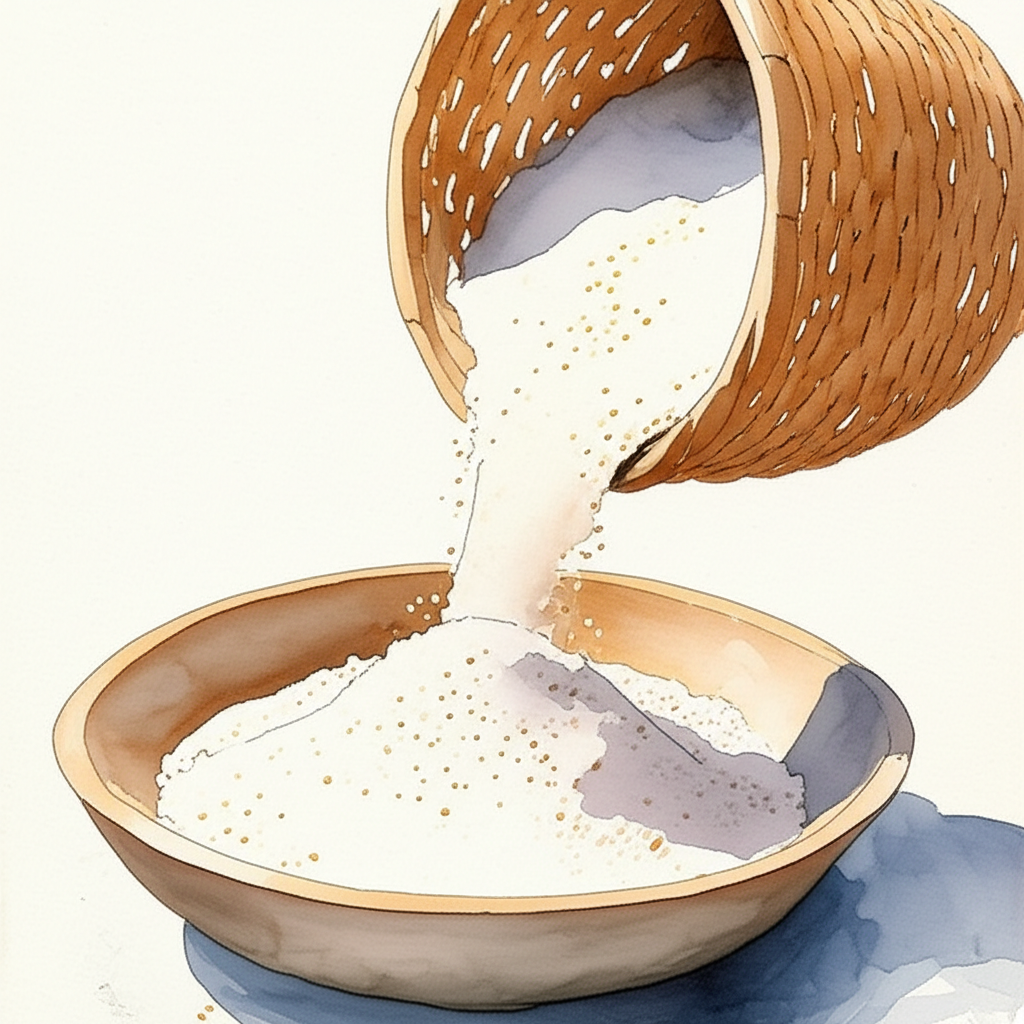
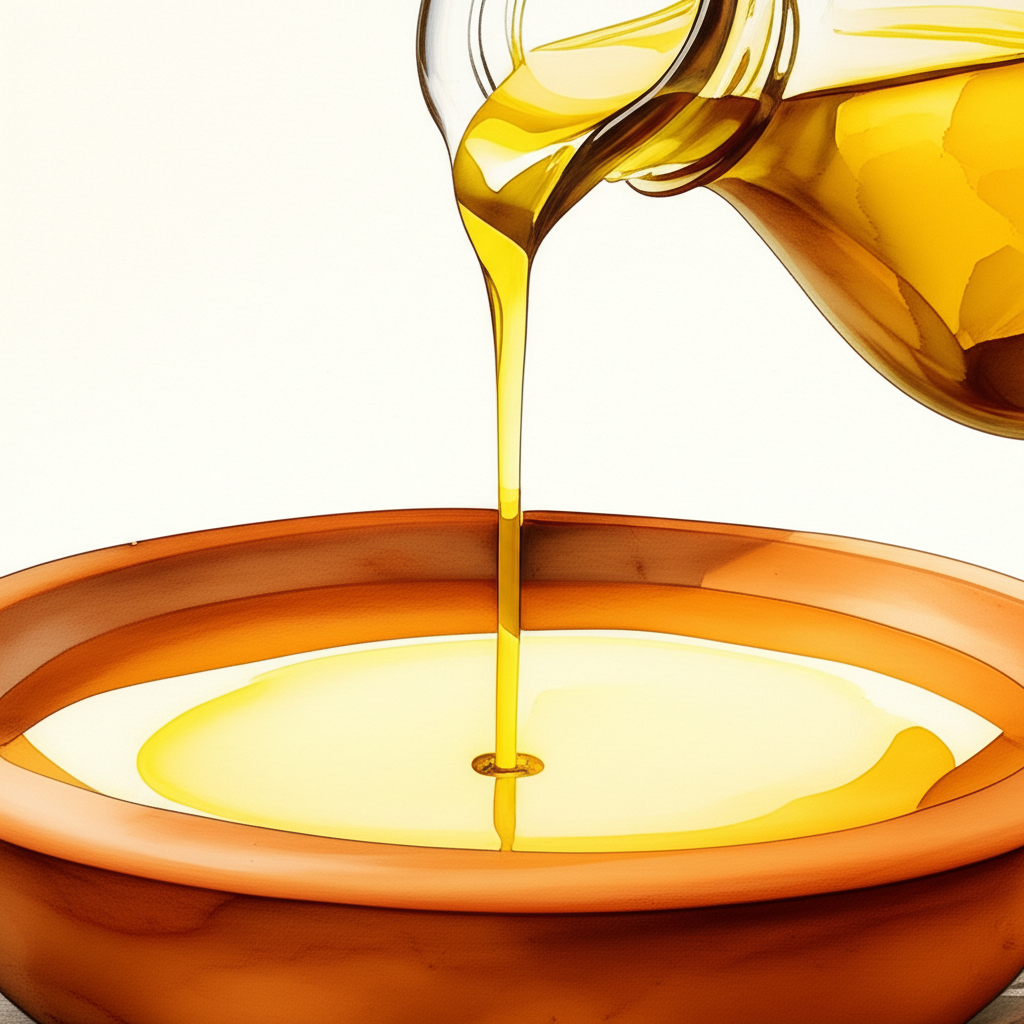
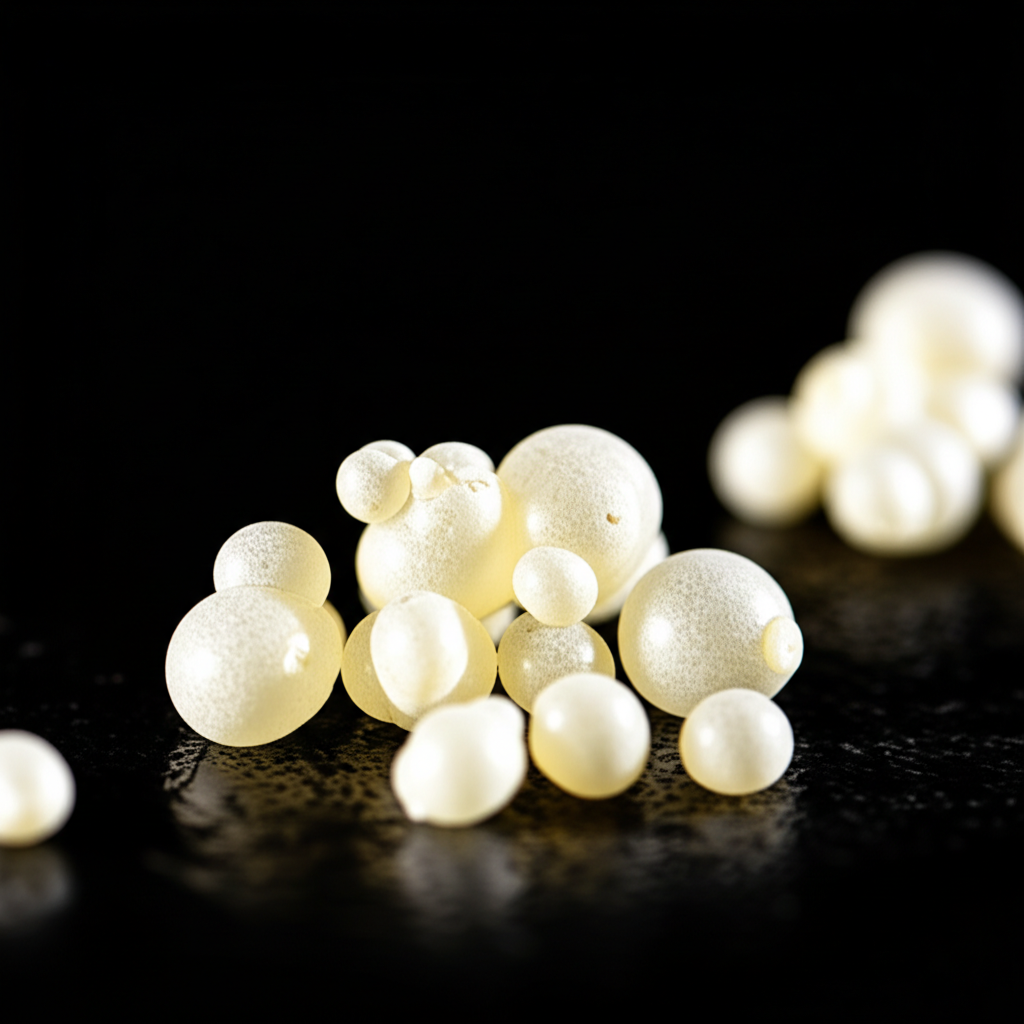
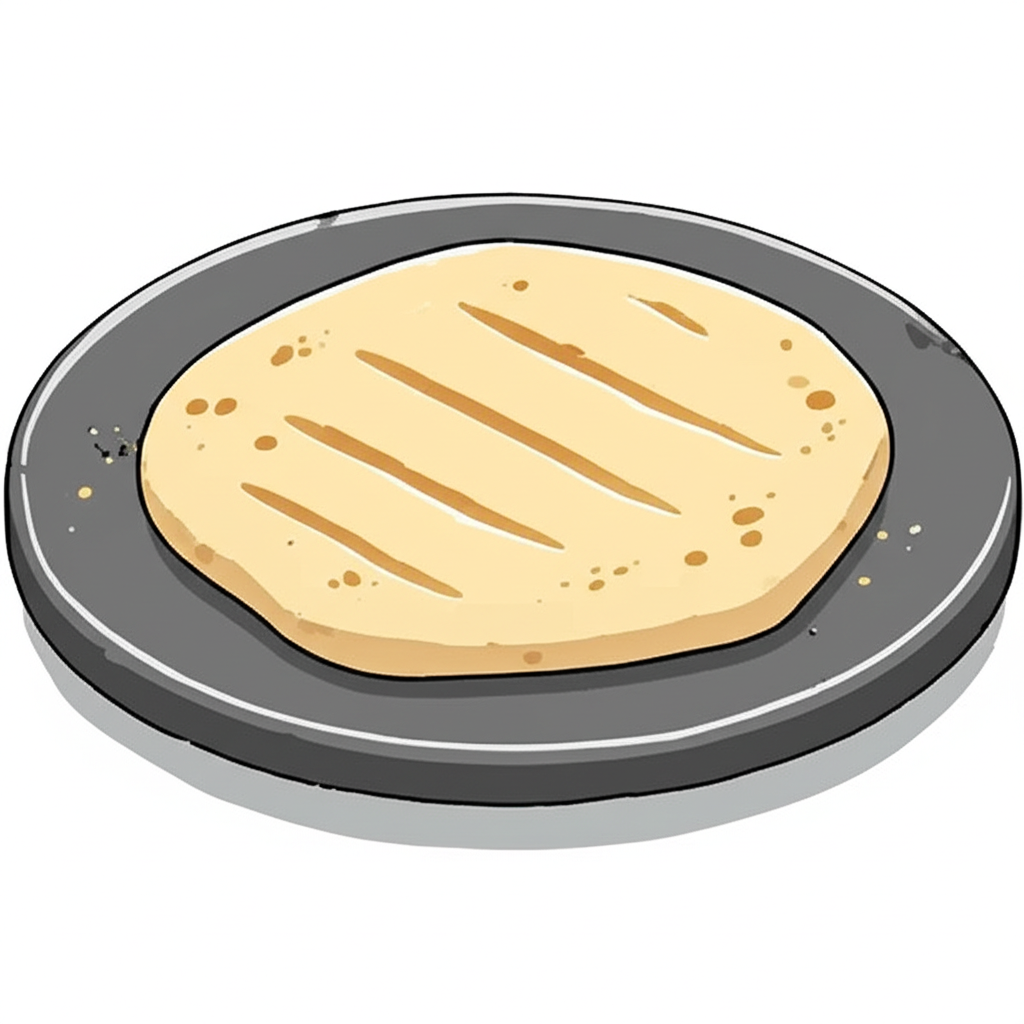

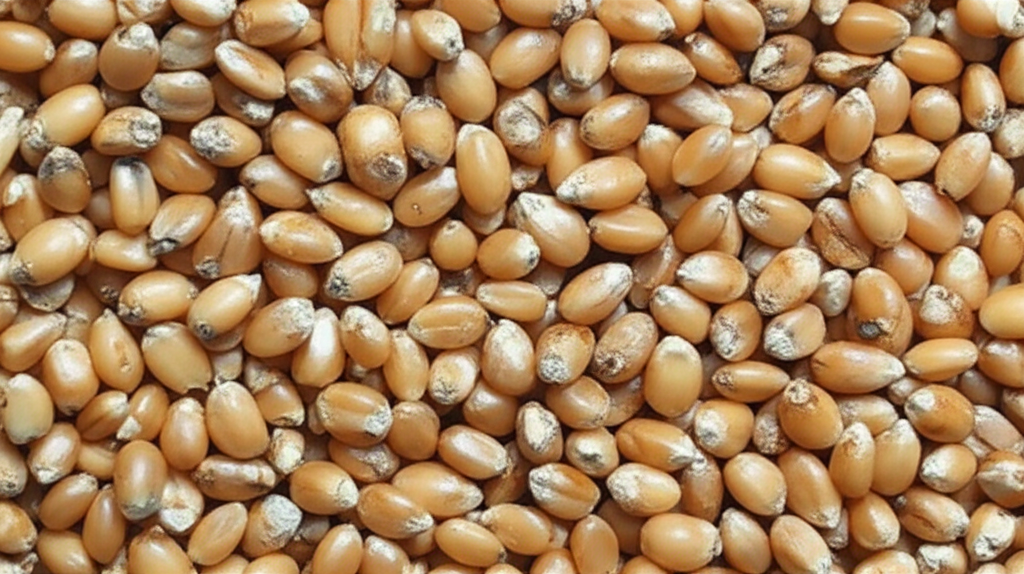
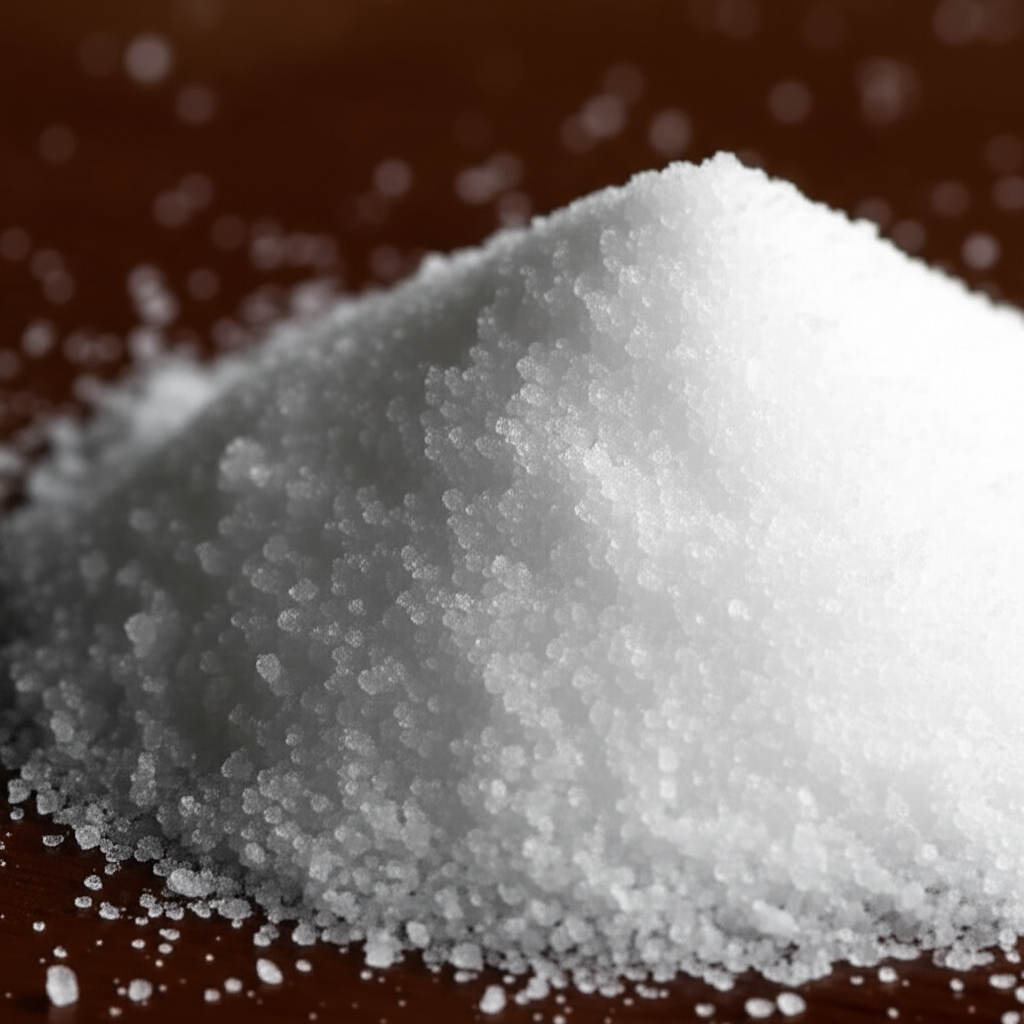
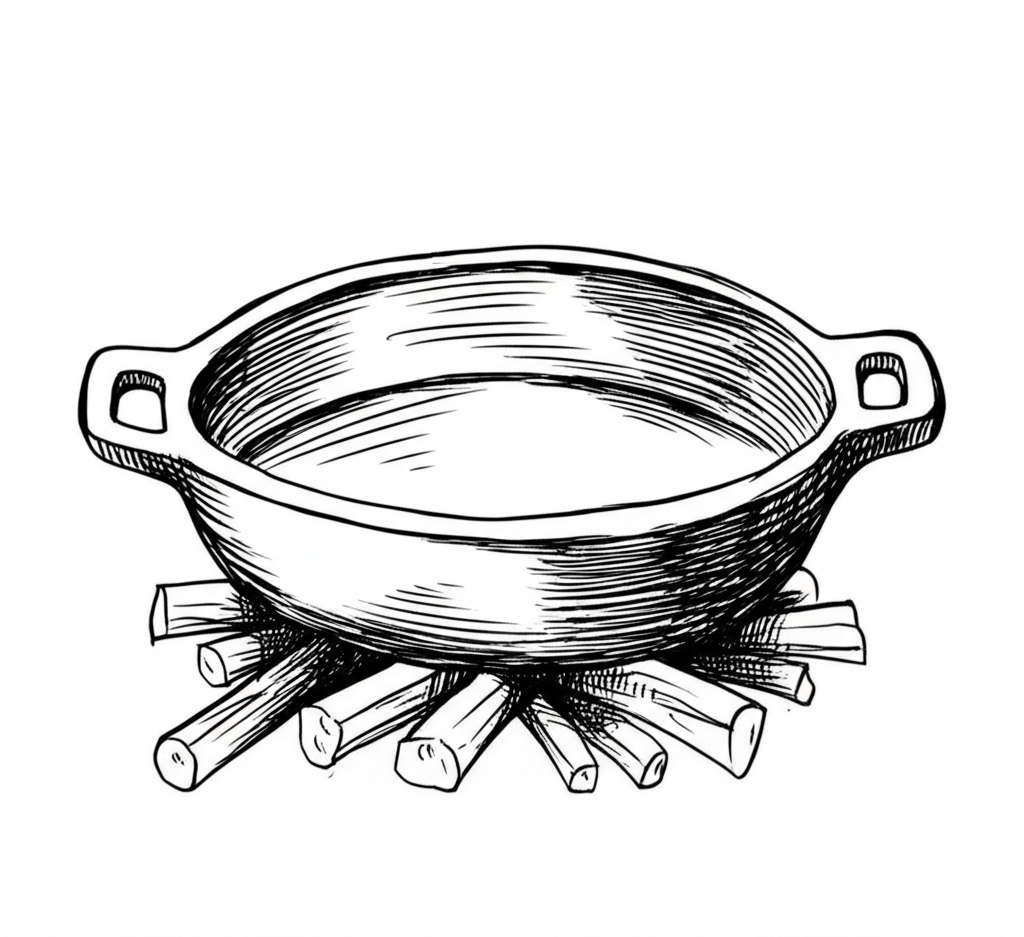
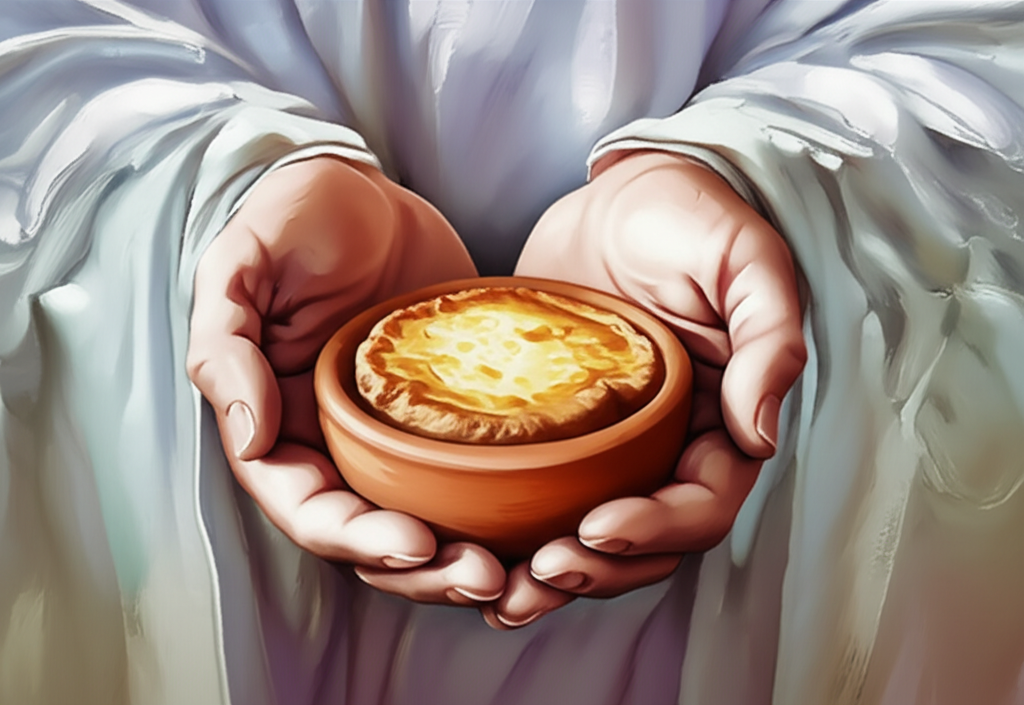
Leviticus chapter 2 kjv
- 1 And when any will offer a meat offering unto the LORD, his offering shall be of fine flour; and he shall pour oil upon it, and put frankincense thereon:
- 2 And he shall bring it to Aaron's sons the priests: and he shall take thereout his handful of the flour thereof, and of the oil thereof, with all the frankincense thereof; and the priest shall burn the memorial of it upon the altar, to be an offering made by fire, of a sweet savor unto the LORD:
- 3 And the remnant of the meat offering shall be Aaron's and his sons': it is a thing most holy of the offerings of the LORD made by fire.
- 4 And if thou bring an oblation of a meat offering baked in the oven, it shall be unleavened cakes of fine flour mingled with oil, or unleavened wafers anointed with oil.
- 5 And if thy oblation be a meat offering baked in a pan, it shall be of fine flour unleavened, mingled with oil.
- 6 Thou shalt part it in pieces, and pour oil thereon: it is a meat offering.
- 7 And if thy oblation be a meat offering baked in the frying pan, it shall be made of fine flour with oil.
- 8 And thou shalt bring the meat offering that is made of these things unto the LORD: and when it is presented unto the priest, he shall bring it unto the altar.
- 9 And the priest shall take from the meat offering a memorial thereof, and shall burn it upon the altar: it is an offering made by fire, of a sweet savor unto the LORD.
- 10 And that which is left of the meat offering shall be Aaron's and his sons': it is a thing most holy of the offerings of the LORD made by fire.
- 11 No meat offering, which ye shall bring unto the LORD, shall be made with leaven: for ye shall burn no leaven, nor any honey, in any offering of the LORD made by fire.
- 12 As for the oblation of the firstfruits, ye shall offer them unto the LORD: but they shall not be burnt on the altar for a sweet savor.
- 13 And every oblation of thy meat offering shalt thou season with salt; neither shalt thou suffer the salt of the covenant of thy God to be lacking from thy meat offering: with all thine offerings thou shalt offer salt.
- 14 And if thou offer a meat offering of thy firstfruits unto the LORD, thou shalt offer for the meat offering of thy firstfruits green ears of corn dried by the fire, even corn beaten out of full ears.
- 15 And thou shalt put oil upon it, and lay frankincense thereon: it is a meat offering.
- 16 And the priest shall burn the memorial of it, part of the beaten corn thereof, and part of the oil thereof, with all the frankincense thereof: it is an offering made by fire unto the LORD.
Leviticus chapter 2 nkjv
- 1 'When anyone offers a grain offering to the LORD, his offering shall be of fine flour. And he shall pour oil on it, and put frankincense on it.
- 2 He shall bring it to Aaron's sons, the priests, one of whom shall take from it his handful of fine flour and oil with all the frankincense. And the priest shall burn it as a memorial on the altar, an offering made by fire, a sweet aroma to the LORD.
- 3 The rest of the grain offering shall be Aaron's and his sons'. It is most holy of the offerings to the LORD made by fire.
- 4 'And if you bring as an offering a grain offering baked in the oven, it shall be unleavened cakes of fine flour mixed with oil, or unleavened wafers anointed with oil.
- 5 But if your offering is a grain offering baked in a pan, it shall be of fine flour, unleavened, mixed with oil.
- 6 You shall break it in pieces and pour oil on it; it is a grain offering.
- 7 'If your offering is a grain offering baked in a covered pan, it shall be made of fine flour with oil.
- 8 You shall bring the grain offering that is made of these things to the LORD. And when it is presented to the priest, he shall bring it to the altar.
- 9 Then the priest shall take from the grain offering a memorial portion, and burn it on the altar. It is an offering made by fire, a sweet aroma to the LORD.
- 10 And what is left of the grain offering shall be Aaron's and his sons'. It is most holy of the offerings to the LORD made by fire.
- 11 'No grain offering which you bring to the LORD shall be made with leaven, for you shall burn no leaven nor any honey in any offering to the LORD made by fire.
- 12 As for the offering of the firstfruits, you shall offer them to the LORD, but they shall not be burned on the altar for a sweet aroma.
- 13 And every offering of your grain offering you shall season with salt; you shall not allow the salt of the covenant of your God to be lacking from your grain offering. With all your offerings you shall offer salt.
- 14 'If you offer a grain offering of your firstfruits to the LORD, you shall offer for the grain offering of your firstfruits green heads of grain roasted on the fire, grain beaten from full heads.
- 15 And you shall put oil on it, and lay frankincense on it. It is a grain offering.
- 16 Then the priest shall burn the memorial portion: part of its beaten grain and part of its oil, with all the frankincense, as an offering made by fire to the LORD.
Leviticus chapter 2 niv
- 1 "?'When anyone brings a grain offering to the LORD, their offering is to be of the finest flour. They are to pour olive oil on it, put incense on it
- 2 and take it to Aaron's sons the priests. The priest shall take a handful of the flour and oil, together with all the incense, and burn this as a memorial portion on the altar, a food offering, an aroma pleasing to the LORD.
- 3 The rest of the grain offering belongs to Aaron and his sons; it is a most holy part of the food offerings presented to the LORD.
- 4 "?'If you bring a grain offering baked in an oven, it is to consist of the finest flour: either thick loaves made without yeast and with olive oil mixed in or thin loaves made without yeast and brushed with olive oil.
- 5 If your grain offering is prepared on a griddle, it is to be made of the finest flour mixed with oil, and without yeast.
- 6 Crumble it and pour oil on it; it is a grain offering.
- 7 If your grain offering is cooked in a pan, it is to be made of the finest flour and some olive oil.
- 8 Bring the grain offering made of these things to the LORD; present it to the priest, who shall take it to the altar.
- 9 He shall take out the memorial portion from the grain offering and burn it on the altar as a food offering, an aroma pleasing to the LORD.
- 10 The rest of the grain offering belongs to Aaron and his sons; it is a most holy part of the food offerings presented to the LORD.
- 11 "?'Every grain offering you bring to the LORD must be made without yeast, for you are not to burn any yeast or honey in a food offering presented to the LORD.
- 12 You may bring them to the LORD as an offering of the firstfruits, but they are not to be offered on the altar as a pleasing aroma.
- 13 Season all your grain offerings with salt. Do not leave the salt of the covenant of your God out of your grain offerings; add salt to all your offerings.
- 14 "?'If you bring a grain offering of firstfruits to the LORD, offer crushed heads of new grain roasted in the fire.
- 15 Put oil and incense on it; it is a grain offering.
- 16 The priest shall burn the memorial portion of the crushed grain and the oil, together with all the incense, as a food offering presented to the LORD.
Leviticus chapter 2 esv
- 1 "When anyone brings a grain offering as an offering to the LORD, his offering shall be of fine flour. He shall pour oil on it and put frankincense on it
- 2 and bring it to Aaron's sons the priests. And he shall take from it a handful of the fine flour and oil, with all of its frankincense, and the priest shall burn this as its memorial portion on the altar, a food offering with a pleasing aroma to the LORD.
- 3 But the rest of the grain offering shall be for Aaron and his sons; it is a most holy part of the LORD's food offerings.
- 4 "When you bring a grain offering baked in the oven as an offering, it shall be unleavened loaves of fine flour mixed with oil or unleavened wafers smeared with oil.
- 5 And if your offering is a grain offering baked on a griddle, it shall be of fine flour unleavened, mixed with oil.
- 6 You shall break it in pieces and pour oil on it; it is a grain offering.
- 7 And if your offering is a grain offering cooked in a pan, it shall be made of fine flour with oil.
- 8 And you shall bring the grain offering that is made of these things to the LORD, and when it is presented to the priest, he shall bring it to the altar.
- 9 And the priest shall take from the grain offering its memorial portion and burn this on the altar, a food offering with a pleasing aroma to the LORD.
- 10 But the rest of the grain offering shall be for Aaron and his sons; it is a most holy part of the LORD's food offerings.
- 11 "No grain offering that you bring to the LORD shall be made with leaven, for you shall burn no leaven nor any honey as a food offering to the LORD.
- 12 As an offering of firstfruits you may bring them to the LORD, but they shall not be offered on the altar for a pleasing aroma.
- 13 You shall season all your grain offerings with salt. You shall not let the salt of the covenant with your God be missing from your grain offering; with all your offerings you shall offer salt.
- 14 "If you offer a grain offering of firstfruits to the LORD, you shall offer for the grain offering of your firstfruits fresh ears, roasted with fire, crushed new grain.
- 15 And you shall put oil on it and lay frankincense on it; it is a grain offering.
- 16 And the priest shall burn as its memorial portion some of the crushed grain and some of the oil with all of its frankincense; it is a food offering to the LORD.
Leviticus chapter 2 nlt
- 1 "When you present grain as an offering to the LORD, the offering must consist of choice flour. You are to pour olive oil on it, sprinkle it with frankincense,
- 2 and bring it to Aaron's sons, the priests. The priest will scoop out a handful of the flour moistened with oil, together with all the frankincense, and burn this representative portion on the altar. It is a special gift, a pleasing aroma to the LORD.
- 3 The rest of the grain offering will then be given to Aaron and his sons. This offering will be considered a most holy part of the special gifts presented to the LORD.
- 4 "If your offering is a grain offering baked in an oven, it must be made of choice flour, but without any yeast. It may be presented in the form of thin cakes mixed with olive oil or wafers spread with olive oil.
- 5 If your grain offering is cooked on a griddle, it must be made of choice flour mixed with olive oil but without any yeast.
- 6 Break it in pieces and pour olive oil on it; it is a grain offering.
- 7 If your grain offering is prepared in a pan, it must be made of choice flour and olive oil.
- 8 "No matter how a grain offering for the LORD has been prepared, bring it to the priest, who will present it at the altar.
- 9 The priest will take a representative portion of the grain offering and burn it on the altar. It is a special gift, a pleasing aroma to the LORD.
- 10 The rest of the grain offering will then be given to Aaron and his sons as their food. This offering will be considered a most holy part of the special gifts presented to the LORD.
- 11 "Do not use yeast in preparing any of the grain offerings you present to the LORD, because no yeast or honey may be burned as a special gift presented to the LORD.
- 12 You may add yeast and honey to an offering of the first crops of your harvest, but these must never be offered on the altar as a pleasing aroma to the LORD.
- 13 Season all your grain offerings with salt to remind you of God's eternal covenant. Never forget to add salt to your grain offerings.
- 14 "If you present a grain offering to the LORD from the first portion of your harvest, bring fresh grain that is coarsely ground and roasted on a fire.
- 15 Put olive oil on this grain offering, and sprinkle it with frankincense.
- 16 The priest will take a representative portion of the grain moistened with oil, together with all the frankincense, and burn it as a special gift presented to the LORD.
- Bible Book of Leviticus
- 1 Laws for Burnt Offerings
- 2 Laws for Grain Offerings
- 3 Laws for Peace Offerings
- 4 Sacrifies for Sin
- 5 Laws for Guilt Offerings
- 6 The Priests and the Offerings
- 7 Law of the trespass offering
- 8 Consecration of Aaron and His Sons
- 9 The Lord Accepts Aaron's Offering
- 10 The Death of Nadab and Abihu
- 11 Clean and unclean Animals
- 12 Purification After Childbirth
- 13 Laws About Leprosy
- 14 Laws for Cleansing Lepers
- 15 Sperm Discharge and Menstruation cycle
- 16 Day of Atonement
- 17 The Place of Sacrifice
- 18 Unlawful Sexual Relations
- 19 Levitical Laws for Levites
- 20 Punishment for Child Sacrifice
- 21 Holiness and the Priests
- 22 Acceptable Offerings
- 23 The Feasts of the Lord
- 24 The Lamps
- 25 Year of Jubilee
- 26 Blessings for Obedience
- 27 Laws About Vows